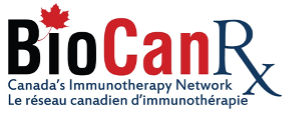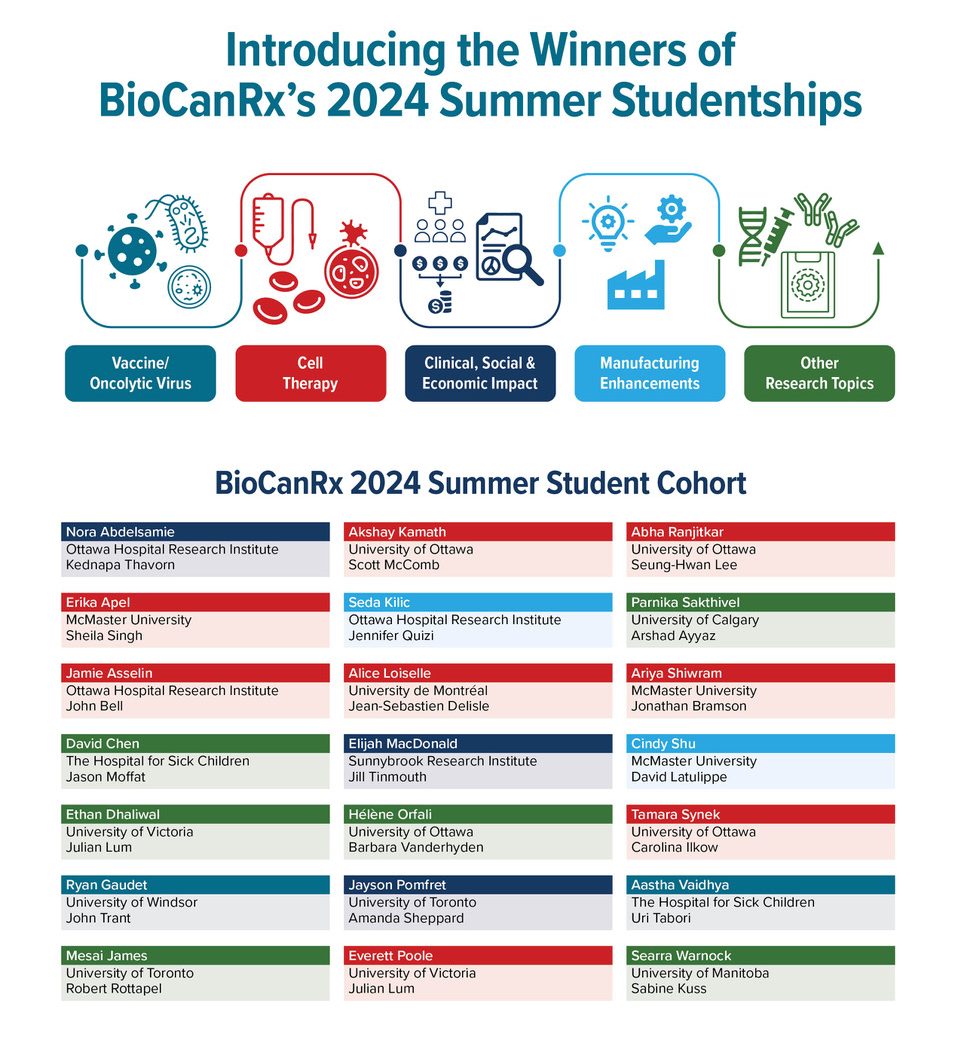
Introducing the winners of BioCanRx’s 2024 Summer Studentships!
BioCanRx is excited to introduce the 21 undergraduate students chosen from across Canada through a competitive application process to be part of our Summer Student Internship Program! The program’s goal is to inspire the next generation of highly qualified personnel to pursue research or policy-related work in cancer immuno-oncology. Undergraduate students receive funding to conduct research with BioCanRx’s network investigators. This opportunity provides students with a practical, hands-on research experience.
BioCanRx would also like to highlight our Indigenous Student Summer Internship program. Six students were chosen through a competitive application process to be a part of this program. Similarly, this program’s goal is to give Indigenous students the opportunity to conduct meaningful hands-on cancer research. This is accomplished through internships with research groups at post-secondary or research institutions across Canada. The BioCanRx Indigenous Student Summer Internship is open to any cancer-related research or policy-related work including that with an Indigenous-oriented framework, such as Indigenous traditional knowledge.
BioCanRx would like to acknowledge our partnerships with the Ontario Institute for Cancer Research (OICR) for their sponsorship of 2 Indigenous students working with Ontario-based researchers, as well as the Canadian Cancer Society (CCS) for their sponsorship of 3 Indigenous students. BioCanRx continues to partner with Indspire to provide mentorship for students who have received this award. Indspire’s Rivers to Success program provides students with one-on-one and group guidance and mentorship from Indigenous peers and role models who can help students stay grounded as they prepare to take the next steps on their personal path to success.
See the biographies for each of our 2024 summer students below!

Name: Nora Abdelsamie
Supervisor(s)/Institution: Dr. Kednapa Thavorn, Ottawa Hospital Research Institute
Project Title: Early Economic Modeling of CAR-T to Optimize the Value of Cancer Therapy for Patients with Hematological Malignancies
Profile: I am a third-year student at Carleton University studying Economics, concentrating on Data Science and Minoring in Health Science. This summer, I will work in Dr. Thavorn’s Research Unit at the Ottawa Hospital Research Institute. The study focuses on the early economic evaluation of CAR-T therapy for patients with hematological malignancies, aiming to inform investment decisions in cost-constrained health systems.
Specifically, I will work on two stages: a headroom analysis and a value of information (VOI) analysis. The headroom analysis calculates the maximum reimbursable price by considering the additional health system cost and savings due to CAR-T therapy. The VOI analysis identifies research areas crucial for reimbursement decisions, guiding future cohort studies and randomized controlled trials (RCTs). A Markov model simulates long-term health benefits, life expectancy, and potential cost savings associated with CAR-T therapy for hematological malignancies. The model considers various treatment arms and outcomes, focusing on acute lymphoblastic leukemia (ALL). The findings will contribute to understanding CAR-T therapy’s economic feasibility and guide trial characteristics to maintain its viability. The analytical approach will be extended to other hematological malignancies, enhancing the generalizability of the study.
The opportunity provided by BioCanRx to conduct research this summer will provide invaluable knowledge in cancer immunology research and allow me to build skills to pursue my future studies. I aspire to pursue a career in academia through graduate school and a Ph.D., dedicating myself to advancing knowledge in my areas of interest: health economics, clinical epidemiology, bioinformatics and translational research in cancer immunology.

Name: Erika Apel
Supervisor(s)/Institution: Dr. Sheila Singh, McMaster University
Project Title: Immunotherapeutic targeting of a nuclear envelope protein in recurrent medulloblastoma
Profile: I have just completed my third year in the Honours Biochemistry program at McMaster University. This summer I will be working in the laboratory of Dr. Sheila Singh at the Centre for Discovery in Cancer Research. In my free time, I enjoy reading, going on walks with my dogs, and trying new coffee shops.
Medulloblastoma (MB) is the most common pediatric brain tumor and comprises four distinct molecular subgroups, WNT, SHH, Group 3, and Group 4. Groups 3 and 4 MB patients are often associated with an increased incidence of disease recurrence and poor prognosis. Although advances in multimodal therapies have yielded a 5-year survivorship in 75% of patients, survivors still face severe neurocognitive deficits. Therefore, there is an urgent need for the development of novel therapeutic modalities that have potent antitumor efficacy against recurrent MB. Through existing MB omics datasets in our lab, we identified a specific nuclear envelope protein to be highly abundant and enriched in Group 3 MB compared to normal tissue. The identification of this upregulated target in Group 3 medulloblastoma across MB omics data sets, provides a potential target to improve patient outcomes.
This summer I will be working on the in vitro testing of CAR-T cells against the nuclear envelope protein to treat MB. This summer studentship will allow me to deepen my knowledge and lab skills, as well as further my passion for immunotherapy. I am grateful for this opportunity and hope to apply these skills to a PhD program in the future.

Name: Jamie Asselin
Supervisor(s)/Institution: Dr. John Bell, Dr. Zaid Taha, Ottawa Hospital Research Institute
Project Title: Generation of OV-enhanced Tumour-infiltrating Lymphocytes for Solid Cancers
Profile: I am a third-year honours biomedical science student at the University of Guelph and will be returning to the Bell Lab at the Ottawa Hospital Research Institute (OHRI) this summer to continue to aid in their inspiring research in cancer immunotherapy. The Bell Lab is primarily focused on engineering oncolytic viruses (OVs) to deliver a therapeutic payload to further enhance the immune stimulation induced by OVs.
This summer I will be researching how the pre-administration of an OV encoding an immune stimulatory transgene, compared to the parental backbone or no virus control, will change the infiltration and functionality of tumour-infiltrating lymphocytes (TILs) that can be used for adoptive cell therapy. Using murine tumour models, I will generate conventional and OV-induced TILs. I will then compare the expansion, tumour-specificity, and phenotype of the TILs through growth curves, IFN-𝛾 ELISpots, and flow cytometry, respectively.
After completing my undergraduate degree, my goal is to pursue both medical school and grad school, either simultaneously through an MD/PhD program, or independently. I have always dreamed of becoming a doctor, but now wish to pursue multiple pathways to medicine—becoming both a researcher and a physician.
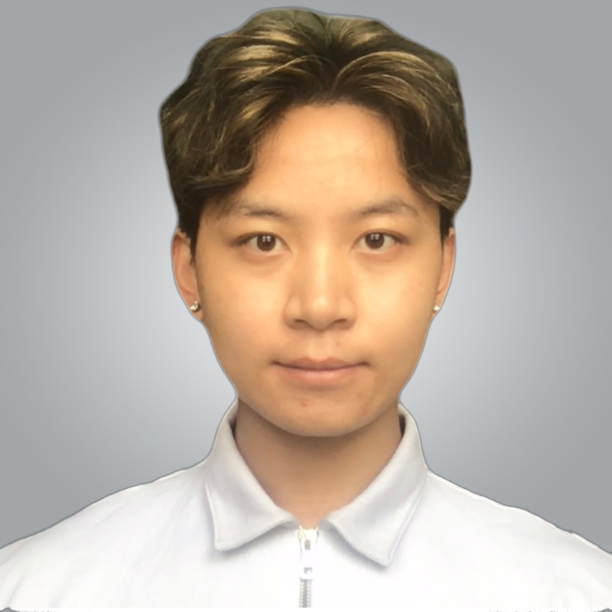
Name: David Chen
Supervisor(s)/Institution: Dr. Jason Moffat, SickKids Research Institute
Project Title: Saturation genome editing reveals the functional landscape of pathogenic POLE variants
Profile: I am a medical student at the University of Toronto. This summer, I will be working with Dr. Jason Moffat at SickKids Research Institute to characterize the functional effect of POLE mutations across POLE-mutant driven cancers.
I will be responsible for the 1) identification and functional annotation of top-scoring pathogenic variants associated with POLE fitness and DNA replication fidelity, 2) association analysis of pathogenic variants with functional domains, regions of conservation, and regions of disorder in POLE, and 3) development of novel combinatorial indexing methods to associate gRNAs with targeted mutations and functional readouts. Given the critical role of POLE as a proofreading exonuclease and master regulator of genomic stability, interrogating the functional variants of POLE provides a new lens to quantify the initiation, progression, and recurrence of POLE mutant-driven colorectal, endometrial, and ovarian cancers.
The BioCanRX studentship provides an incredible opportunity for me to pursue dedicated research at the intersection of bioinformatics and cancer medicine. I am excited to derive new insights into POLE biology to reveal potential biological mechanisms for POLE-mutant mediated oncogenesis and improve the design of precise, pan-cancer POLE-mutant immunotherapeutics.
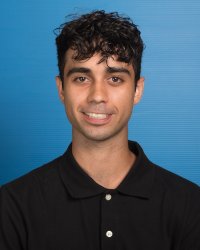
Name: Ethan Dhaliwal
Supervisor(s)/Institution: Dr. Julian J. Lum, University of Victoria
Project Title: Examining the role of hormone therapy and radiation therapy in the production of humoral and cellular immune responses in metastatic castrate resistant prostate cancer
Profile: I recently finished my first year of medical school at UBC and before that I did a Bachelor of Science in Biochemistry at the University of Victoria. Outside of academics I enjoy playing soccer and exploring the outdoors. This summer, I am excited to be working with Dr. Julian J. Lum at the Deeley Research Centre in Victoria.
The goal of my project is to determine whether different treatments, particularly hormone therapy (HT) and radiation therapy (RT), for prostate cancer induce tumor-specific immune responses. We wish to study the role of CD4+ T cells during HT and RT in humans in order to determine a way to shape the immune response towards an effective anti-tumor response. This will be accomplished using serological and immunological methods to measure the induction of antigen-specific immune responses and T cell responses in prostate cancer patients undergoing different forms of treatment. The aim is to identify T cells that respond to specific mutations in the metastatic castrate resistant patient samples. We will also address whether the induction of tumor-specific immunity is associated with outcome. If our hypothesis proves correct, it will provide a rationale for incorporating immunomodulatory strategies into current regimens to optimize the systemic anti-tumor immune response and thereby further improve patient outcomes.
I am very grateful to Dr. Lum and BioCanRx for providing me with an opportunity to participate in this research project and expand my knowledge in immunotherapy. I plan on pursuing a career in either medical oncology or hematology. This project will be an extremely valuable learning experience as I hope to incorporate research into my future career as a physician as well.
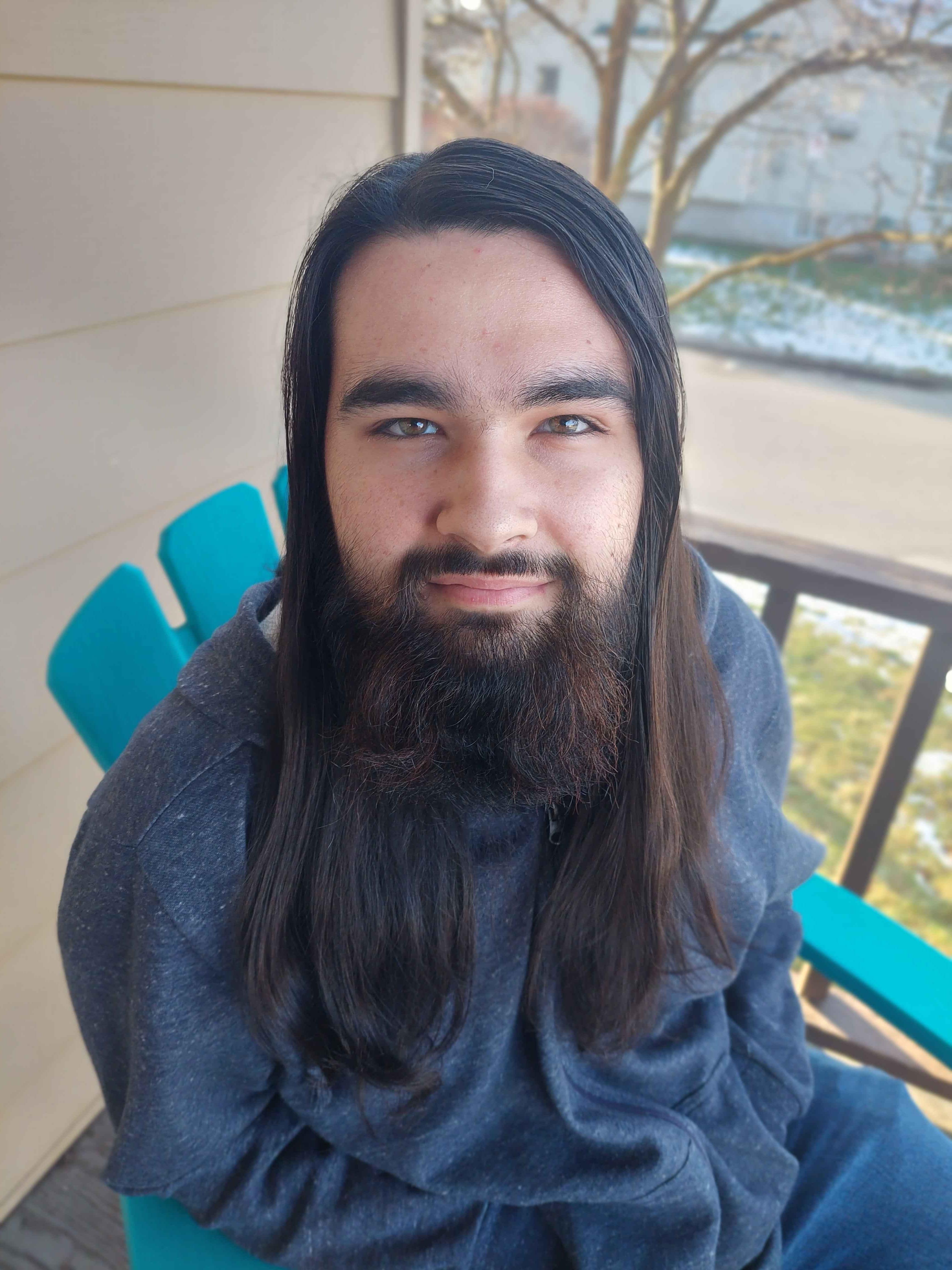
Name: Ryan Gaudet
Supervisor(s)/Institution: Dr. John Trant, University of Windsor
Project Title: Developing a vaccine for cancers: Comparing the immunogenicity of acetal-free and acetal-containing sugar antigens
Profile: I recently completed my second year at the University of Windsor, where I am pursuing a major in Biochemistry and Biomedical Sciences with a minor in Statistics. I have worked with the Trant Team since February 2023 and will continue this summer. Outside of academics, I like to play video games, spend time with friends and garden.
This summer, I am embarking on a research project to create a Tn antigen vaccine for cancer prevention. This vaccine involves a carbohydrate ligated to an immunogenic peptide, which has had issues with stability due to enzymatic activity cleaving this bond. My role will be to synthesize the “natural” acetal-containing sugars and acetal-free carbohydrates (AFC, e.g. C-glycosides). We anticipate that AFCs will exhibit equal activity while being less labile under physiological conditions, thereby enhancing bioactivity. The ultimate aim of this project is to utilize the Tn antigen vaccine to enhance the immune system’s ability to identify and eliminate cancer cells.
After my undergraduate degree, I aim to enroll in graduate school and eventually earn a PhD in pharmacology. The way that different agents and therapeutics interact in the human body interests me, and this project offers an excellent avenue for learning more about the drug design process. I am very thankful for the opportunity this studentship provides to allow me to work on such an important project and further develop my skill set with the Trant Team.
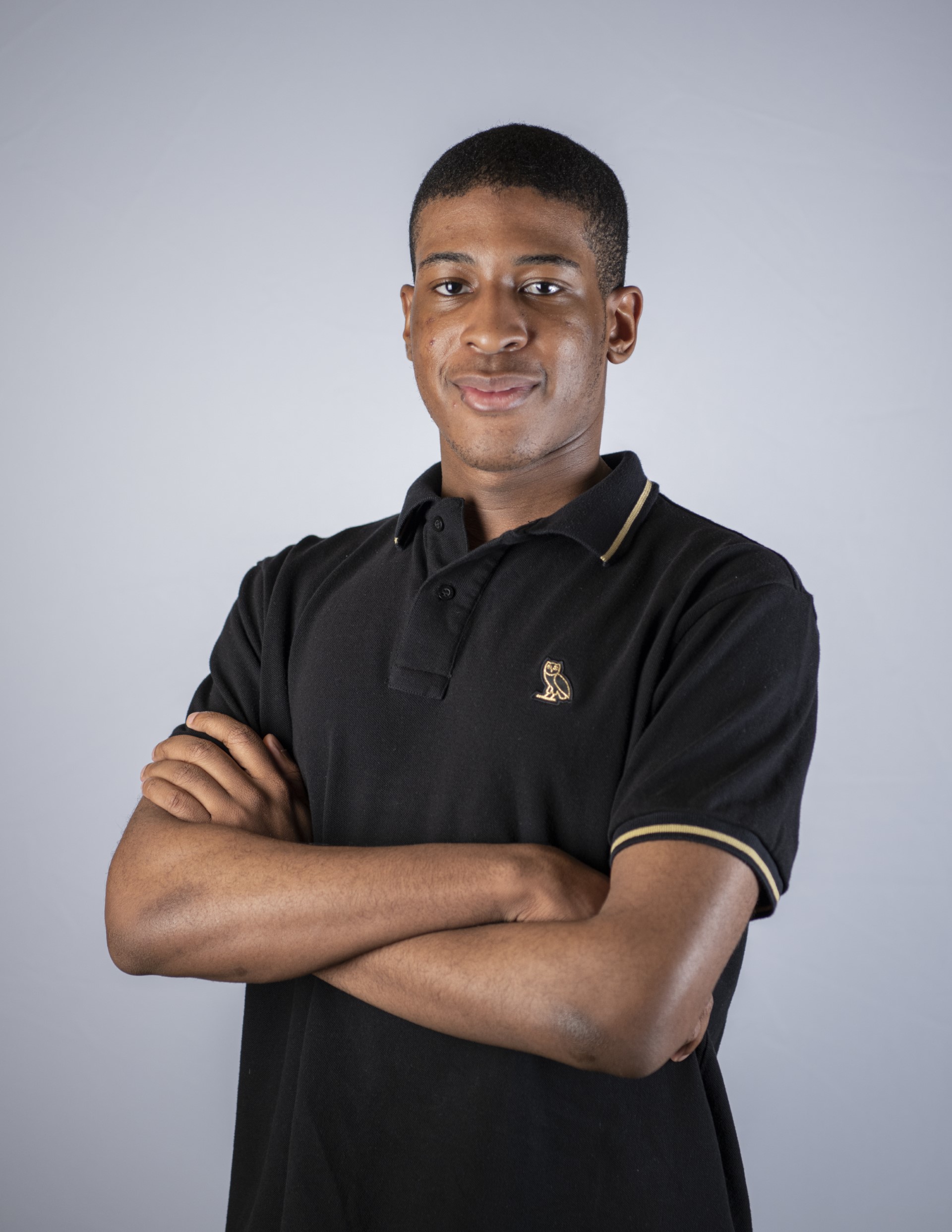
Name: Mesai James
Supervisor(s)/Institution: Dr. Robert Rottapel, University of Toronto
Project Title: Characterization of SMG1 inhibitors to induce antigen presentation in ovarian cancer
Profile: After finishing my second year of double majoring in Neuroscience and Immunology at the University of Toronto, I will be conducting summer research in the Rottapel lab at Princess Margaret Cancer Centre associated with the University of Toronto under the supervision and guidance of our research associate, Kyle Francis.
The research I will be conducting in the summer looks at high-grade serous ovarian cancer (HGSOC), a lethal gynaecological cancer with standard platinum-based chemotherapy to where most of the patients develop resistance. The disease is characterized by a mutant P53 that permits the acquisition of copy number gains and losses, which increases the tumour fitness. This damaged genome gives rise to a damaged transcriptome that must be degraded by the RNA surveillance pathway, nonsense-mediated decay (NMD), regulated by the SMG1 kinase. This project will illustrate that a commercial SMG1 inhibitor can induce HGSOC cell death and increase the presentation of HGSOC-specific, MHC class I-associated peptides (MAP) that were direct NMD targets.
Novel SMG1 compounds that induce HGSOC cell death have been developed. Next, I will assess our library of 35 novel compounds for their inhibitory effect in cell-free SMG1 kinase assays. With collaborators, our team has developed a cell-free kinase assay with the appropriate SMG1 and substrate UPF1 protein purification protocols. The procedure of the research will involve assessing the compound’s SMG1 inhibitory effect by performing the kinase assays using phospho-specific UPF1 western blots and curve-fitting software and measuring MAP mRNA induction following treatment in the TOV1946 HGSOC cells using qPCR assays.
I want to personally thank BioCanRx for providing me with this opportunity to gain knowledge of cancer immunology outside of the classroom to work again with the Rottapel Lab to characterize SMG1 inhibitors. With this Summer Studentship, I hope to expand my research capabilities through increasingly difficult processes of analyses and assays to prepare me for entering the research and healthcare fields.
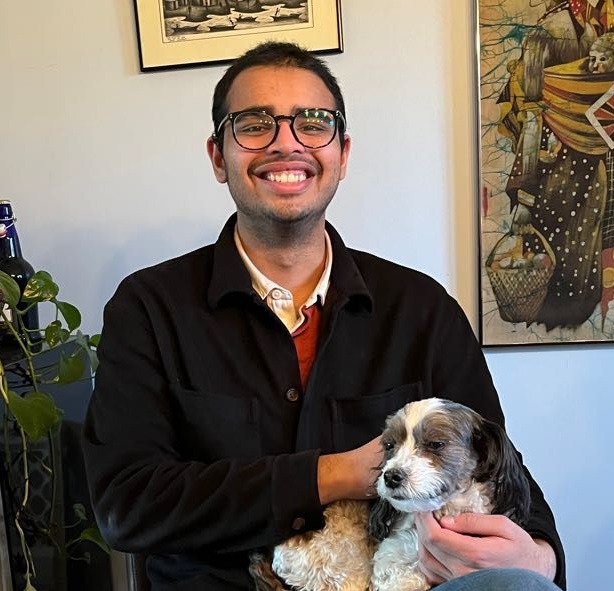
Name: Akshay Ajit Kamath
Supervisor(s)/Institution: Dr. Scott McComb, University of Ottawa
Project Title: Advancing solid tumor immunotherapy using a combinatorial approach to develop BiTE-activated CAR-T cells (BAT-CAR).
Profile: As I conclude my second year in combined honours in Neuroscience & Biology at Carleton University, I look forward to an exciting summer working with Dr. McComb’s team of scientists, at the National Research Council. I am grateful to be a recipient of the BioCanRx studentship as it gives me an opportunity to develop the confidence and competence to excel in research and build a versatile research “toolbox” equipped with a robust foundation of transferable skills.
Bi-specific T cell engagers and CAR-T cell therapy have demonstrated promising immunotherapeutic efficacy in hematological cancers but their effectiveness against solid tumors is limited. This project aims lay the foundation for the development of a future immunotherapeutic by combining CAR-T cell therapy with Bi-specific T cell engagers to develop a novel BiTE activated CAR-T cell (BAT-CAR). Over the summer, I will be investigating the sensitivity/selectivity & killing efficiency of BAT-CAR and helping to establish a response profile of CAR-T, BiTE and BAT-CARs using a variety of techniques like flow cytometry and live cell imaging.

Name: Seda Kilic
Supervisor(s)/Institution: Dr. Jennifer Quizi, Ottawa Hospital Research Institute
Project Title: Advancing TIL Therapy: Optimizing Manufacturing Processes for Improved Cancer Treatment
Profile: As a third-year biotechnology student at Algonquin College in Ottawa, I am thrilled to be embarking on a research project this summer focusing on optimizing tumour-infiltrating lymphocyte (TIL) manufacturing processes for immunotherapy. I will be conducting this research at the Biotherapeutics Manufacturing Centre (BMC), under the supervision of Dr. Jennifer Quizi and guidance of Dr. Mathieu Crupi, with a specific focus on investigating the ex vivo expansion of T cells.
My academic journey, which includes both bachelor’s and master’s degrees in biotechnology, has equipped me with the skills and knowledge necessary for such endeavors. In the past, my research involved investigating how human cancer cell lines respond to different stimuli by either proliferating or undergoing apoptosis. This previous experience not only solidified my interest in cancer research but also prepared me for the challenges and opportunities ahead in this field. Therefore, this opportunity perfectly aligns with my academic interests and provides invaluable experience in biotechnology and immunotherapy.
During the summer, I will assist the Personalized Biotherapeutics team to explore the impact of various cytokine combinations on ex vivo TIL expansion, as well as assess the effectiveness of artificial feeder cells in stimulating TIL proliferation and activation. Additionally, I will also be investigating the integration of automation to streamline production timelines, aiming to reduce the time-to-vein for TIL therapy. These research and development studies will allow us to optimize and better characterize TIL expansion through innovative experimental design, cell culture techniques, and flow cytometry analyses. In doing so, I hope to advance personalized cancer therapies by optimizing manufacturing protocols that can make TIL therapy accessible and affordable.
I am deeply grateful for the opportunity provided by BioCanRx, and eager to seize this chance to further enhance my research skills and expertise during this summer studentship. My ultimate goal after graduation is to delve deeper into the realm of immunotherapy, aspiring to pursue a career in this dynamic field.
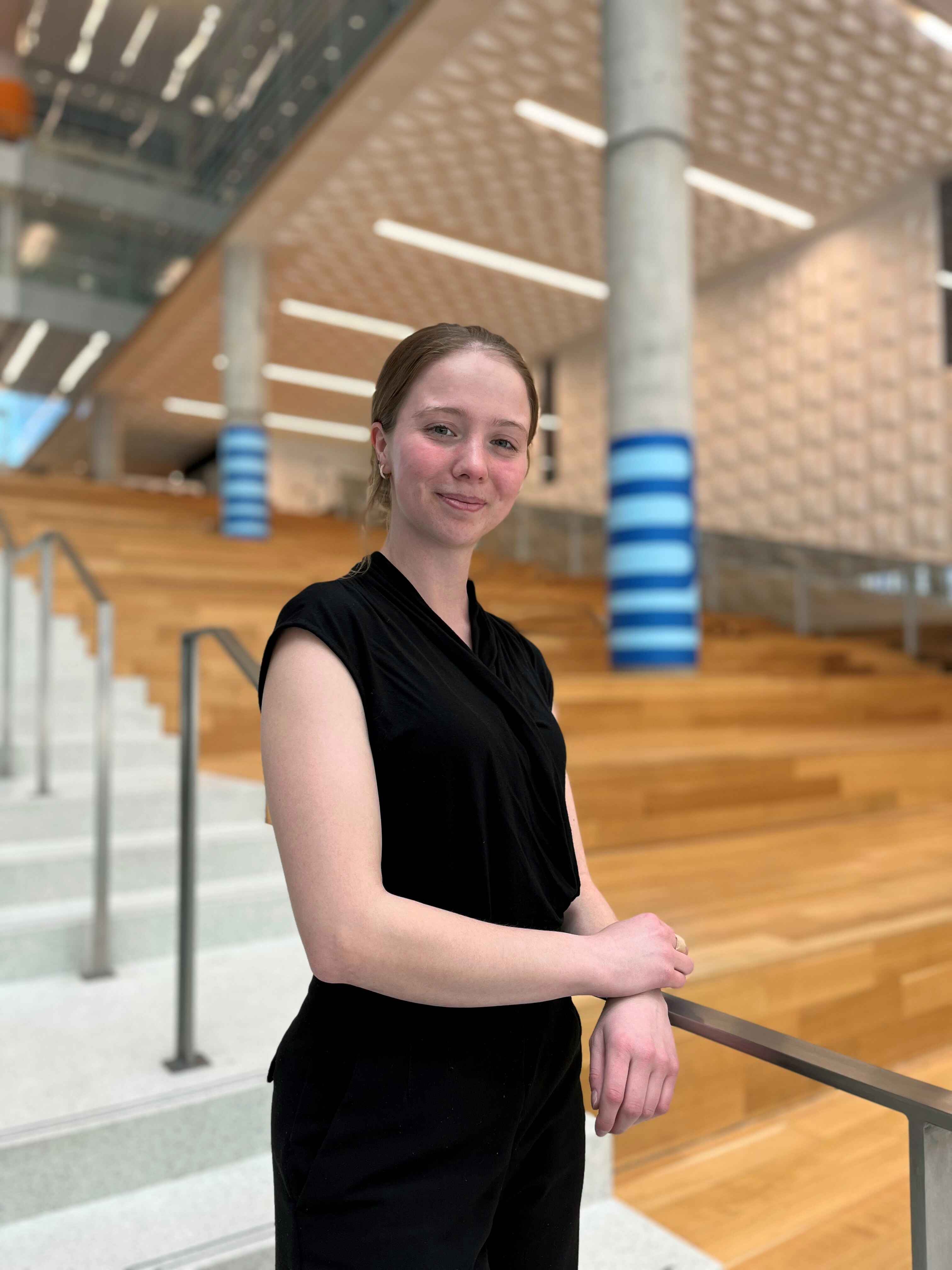
Name: Alice Loiselle
Supervisor(s)/Institution: Dr. Jean-Sébastien Delisle, Maisonneuve-Rosemont Hospital
Project Title: T-cells redirecting against cryptic antigens
Profile: I’ve just completed my second year in Biochemistry and molecular medicine at the University of Montreal. This summer, I am pleased and honored to be working in Dr. Jean-Sébastien Delisle’s lab at the Maisonneuve-Rosemont Hospital Research Center. Outside the lab, I climb. I am on my way to get through v6 soon!
We will be working on cryptic antigens expressed in leukemia. Those antigens can be targeted by some rare circulating t-cells, of which we identified the receptors (TCR). Therefore, my project will be to modify t-cells, using CRISPR-Cas9, to make them express those TCR and specific to those antigens. Moreover, I will be in charge of finding their optimal culture conditions following their electroporation, in order for them to expand at clinical scales. This project will allow me to work on a new part of cellular immunotherapy, which can specifically target cancer cells in addition of avoiding “off-targets”.
This project with Dr. Delisle will allow me to participate in immunotherapy’s innovation while developing strong skills. These will be useful in my graduate studies. As I want them to be in immunotherapy, I would like to thank BioCanRx for this Summer Studentship and opportunity to acquire a precious experience in that field.

Name: Elijah MacDonald
Supervisor(s)/Institution: Dr. Jill Tinmouth, Sunnybrook Research Institute
Project Title: Improving Indigenous cultural safety in Ontario’s cancer screening programs.
Profile: My name is Elijah MacDonald, and I am a proud member of Michipicoten First Nations in Wawa Ontario.
I have just finished my third year of Honors Social Work at McMaster University with a minor in Indigenous Studies. This summer, I will be working with Dr. Jill Tinmouth along with other researchers to improve Indigenous cultural safety in Ontario’s cancer screening programs.
I am very excited to be a part of a great group of researchers that look to advocate for those whose voices are silenced. I am committed to improving the lives of Indigenous Peoples all across Ontario and this opportunity helps me do that while focusing on intense research that will benefit Indigenous Peoples for generations. I plan to explore different ways that we can improve cultural safety through an Indigenous lens as well as looking at the importance of cancer screening programs for all.
As I go into my fourth year, I look to pursue a career in healthcare that focuses on helping Indigenous Peoples around me. I am very fortunate to get this opportunity with BioCanRx and I am looking forward to the skills that I will gain over the summer.

Name: Hélène Orfali
Supervisor(s)/Institution: Dr. Barbara Vanderhyden, University of Ottawa
Project Title: SLPI Regulation and its Impact on the Ovarian Tumor Microenvironment
Profile: I have just completed my fourth year in the Honours Biomedical Science program at the University of Ottawa. In my free time, I enjoy doing gymnastics, rock climbing, and crochet.
This summer, I will be working in Dr. Barbara Vanderhyden’s Lab, carrying out ovarian cancer research at the Ottawa Hospital Cancer Centre. The Vanderhyden lab has recently discovered an association between frequent expression of the SLPI protein and poor survival in ovarian cancer patients. My summer project will focus on defining the mechanism modulating SLPI expression in cancer cells and identifying SLPI’s impact on the ovarian tumor microenvironment and cancer progression. We aim to understand the pathways that are involved in ovarian cancer and its progression in hopes of contributing to finding alternative treatment and diagnostic methods that will increase survival rates.
I’m incredibly grateful for the BioCanRx summer studentship, providing me with an amazing opportunity to explore my interest in reproductive health research, contribute to cancer research, and adequately prepare me for my master’s research and a future career in reproductive health research by allowing me to become familiar with the research and the techniques I will be utilizing.
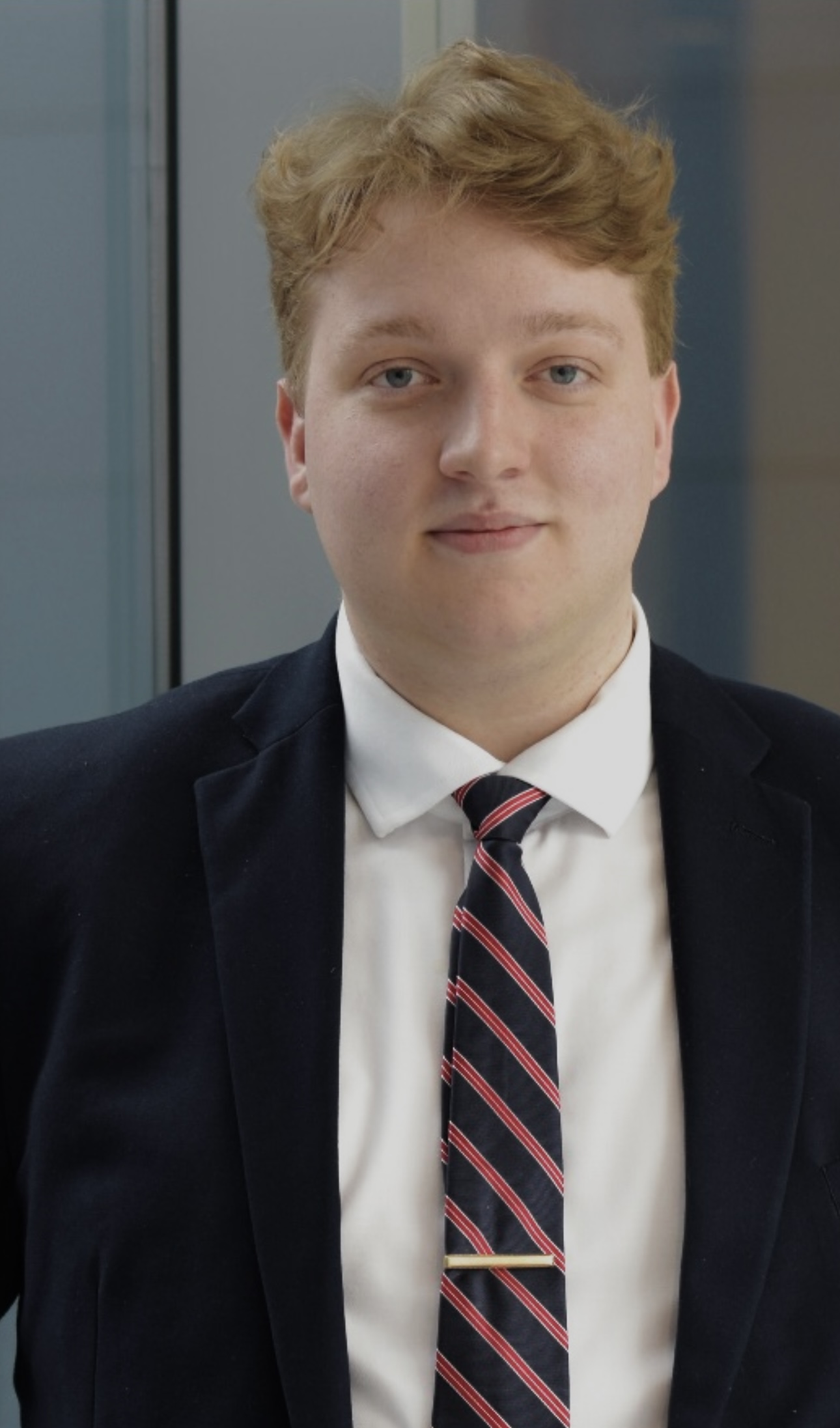
Name: Jayson Pomfret
Supervisor(s)/Institution: Dr. Amanda Sheppard, University of Toronto
Project Title: Collaboratively developing culturally safe Shared Decision-Making (SDM) strategies with First Nations, Inuit, and Metis (FNIM) peoples who are faced with decisions about cancer screening participation
Profile: I am currently in my final year of a Bachelor of Health Sciences degree at Queen’s University, specializing in Infection, Immunity, and Inflammation, and pursuing a certificate in Law. My academic and research interests align closely with improving health equity and developing culturally competent healthcare strategies.
This summer, I am excited to join the Core Community-Research Collaboration group at Ontario Health. In partnership with the Métis Nation of Ontario and other community stakeholders, I will contribute to developing culturally safe Shared Decision-Making strategies. This project aims to enhance the experience of cancer screening for First Nations, Inuit, and Métis communities in Ontario, addressing disparities by fostering better communication and trust between healthcare providers and FNIM patients.
This project intends to improve understanding of indigenous health needs to develop SDM materials that are tailored to the cultural values and specific needs of FNIM peoples. By improving participation in cancer screening, this initiative hopes to reduce the barriers currently leading to lower screening rates among FNIM populations compared to the general population.
After completing my bachelor’s degree, I intend to apply to medical school in Canada, aiming to practice as a physician with research that integrates culturally competent care and policy-driven solutions to improve healthcare outcomes across diverse populations.
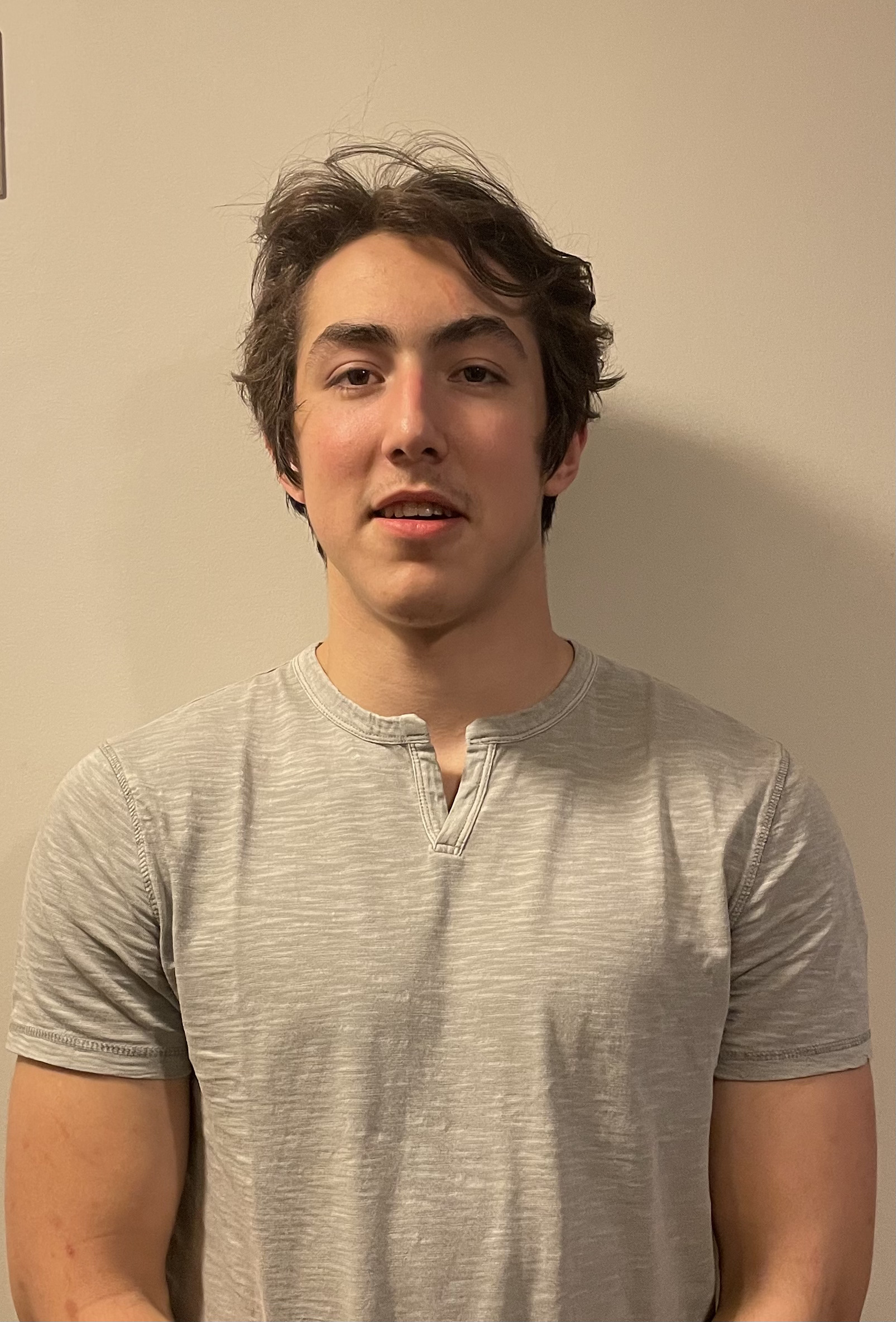
Name: Everett Poole
Supervisor(s)/Institution: Dr. Julian J. Lum, University of Victoria
Project Title: Using targeted genetic screens to identify metabolic candidates for refining CAR-T-cell therapy
Profile: I have just completed my third year of Biochemistry at the University of Victoria where I am working towards my bachelor’s degree in Biochemistry (honors). This summer I will be working at Dr. Julian Lum’s Research Lum Labs at the Deeley Research Centre and subsequent honors project in the fall. Aside from academics, I enjoy playing the guitar, keeping active, and spending time with friends and family.
Chimeric antigen receptor (CAR) T cell therapy has shown promise in treating hematological malignancies but has been less effective in the treatment of solid-tumor cancers. The metabolic pathways used by T-cells are important regulators of their efficiency, durability, and longevity. This summer, my research will use the SLICE (single guide RNA lentiviral infection with Cas9 protein electroporation) method to perform a small-scale metabolic CRISPR-Cas9 knockout screen in primary human T-cells. The research can establish the various roles of several distinct metabolic pathways in the regulation T-cell effector function, as well as nominate metabolic hits that can potentially be used to enhance CAR-T cell therapy in a solid-tumor environment.
The BioCanRX summer studentship provides a valuable opportunity for me to pursue my interests and provides hands-on experience in a lab. I am grateful to BioCanRx, Dr. Julian Lum, and everyone at Lum Labs for this opportunity that will expand my knowledge, skills, and understanding for future contributions to cancer or immunological research.
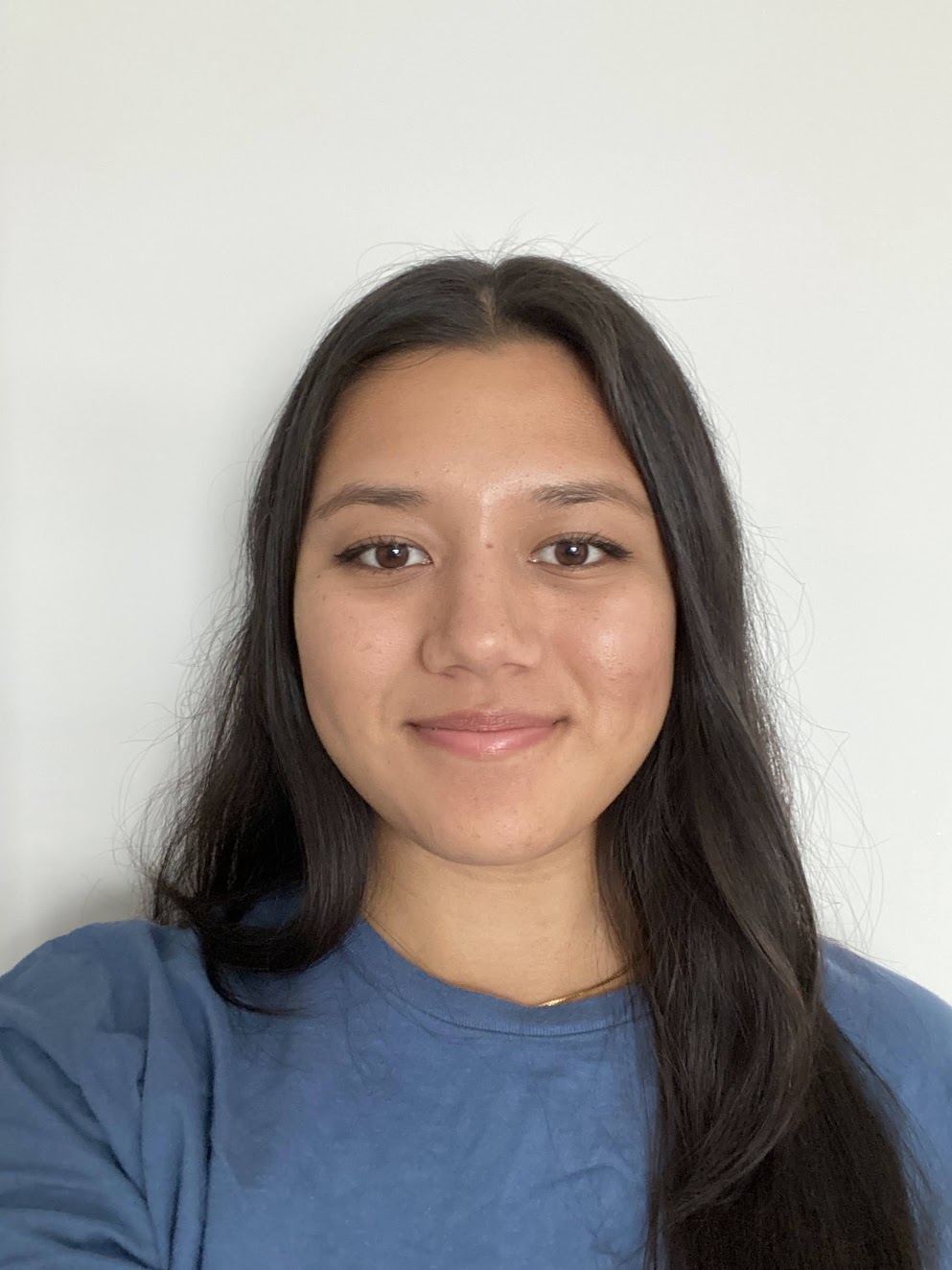
Name: Abha Ranjitkar
Supervisor(s)/Institution: Dr. Seung-Hwan LeeDr. Seung-Hwan Lee, University of Ottawa
Project Title: Investigation of the effect of NK cell engagers in developing NK cell immunotherapy for Multiple Myeloma
Profile: I am a third-year Translational and Molecular Medicine student at the University of Ottawa. In my free time, I love spending time with my family and friends, walking, and baking. This summer, I will be working in Dr. Seung-Hwan Lee’s lab studying Natural Killer (NK) cells.
I will be studying NK cell engagers to target Multiple Myeloma (MM) cells to efficiently eliminate the cancer cells. Currently, the Bispecific Killer Cell Engager (BiKE) contains two antibodies that recognize the receptors on NK cells and MM cells. During treatment, the NK cells and the engager are introduced separately, thus requiring two separate binding events to target and eliminate MM cells. We hope to explore ways in which we can preassemble the NK cell and the engager to reduce the number of binding events in vivo.
I am very grateful to have the opportunity to further develop my research skills to prepare me for my graduate studies through this summer studentship.
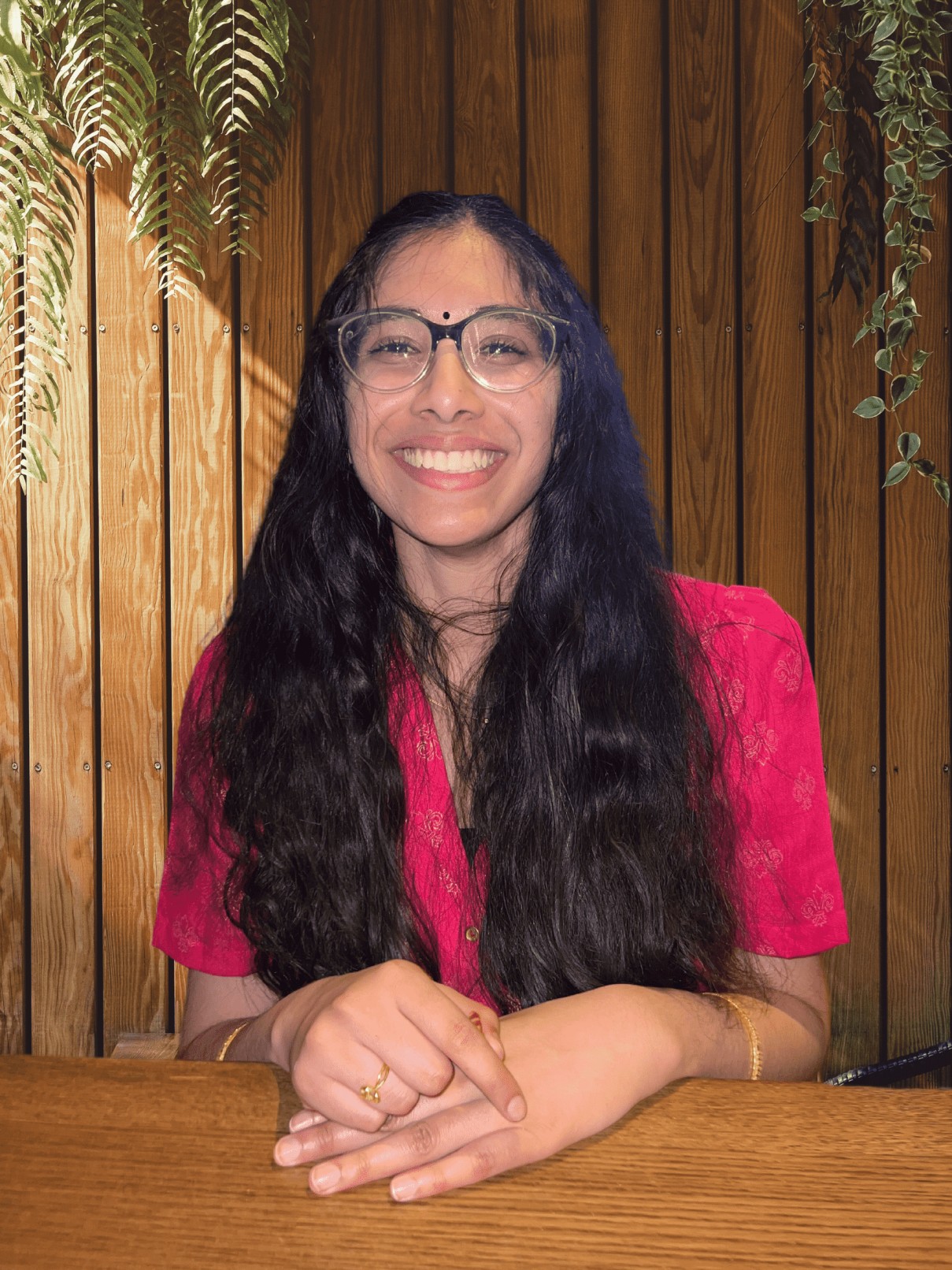
Name: Parnika Sakthivel
Supervisor(s)/Institution: Dr. Arshad Ayyaz, University of Calgary
Project Title: Developing a Novel Drug Discovery Platform to Target Immunotherapy Resistant Colorectal Cancers
Profile: I have just completed my third year, pursuing a Bachelor of Health Sciences in Biomedical Sciences at the University of Calgary. When I’m not in the lab, I enjoy traveling, teaching, working with kids, and film score composing.
This summer, I will be continuing my work in the lab of Dr. Arshad Ayyaz at the University of Calgary, where we are investigating immunotherapy resistance in microsatellite stable colorectal cancer.
Colorectal cancer (CRC) represents the second leading cause of cancer-related deaths in Canada. Genetically, CRC can be classified into two major subtypes: microsatellite stable (MSS) and microsatellite instable (MSI). MSI CRC tends to respond favourably to immunotherapy. Conversely MSS CRC, which represents ~85% of colorectal cancer cases, responds poorly to immunotherapy.
Dr. Ayyaz’s group recently discovered a gene candidate (denoted ‘Gene X’) that is selectively expressed in MSS CRC. This suggests that Gene X may be involved in the immunotherapy-resistant phenotype observed in MSS CRC. They also found that epigenetic changes in CRC induce Gene X expression, providing an opportunity to target MSS CRC using epigenetic modulators that inhibit Gene X expression.
To better understand immunotherapy resistance in CRC and identify potential methods of targeting it, I am developing a fluorescent reporter that enables detection of Gene X expression in organoids derived from primary CRC tumour samples. Using the reporter, I hope to screen a panel of epigenetic modulators in collaboration with Dr. Douglas Mahoney’s lab to identify a Gene X inhibitor worth pursuing in-clinic. Meanwhile, I also hope to perform RNAseq analysis on Gene X positive and negative cells isolated in lab to gain mechanistic insight into the genes maintaining the immunotherapy-resistant phenotype.
Though I am unsure of where my path will take me going forward, I hope to pursue a career as a physician and possibly a joint career in medicine and academia. I am incredibly grateful to both Dr. Ayyaz and BioCanRx for providing me with this amazing opportunity to deepen my research experience and prepare me for a future career in the health sciences.
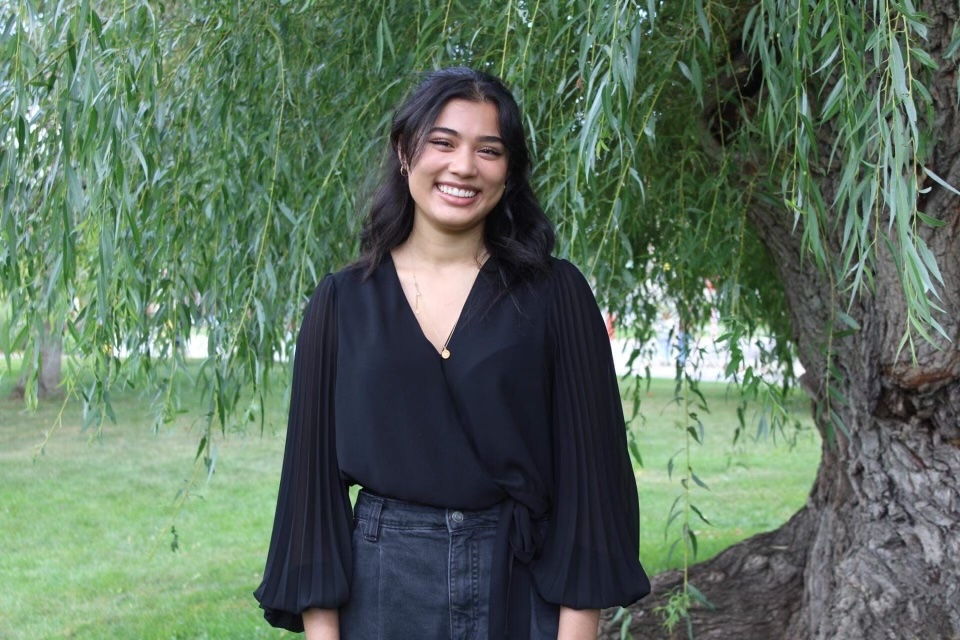
Name: Ariya Shiwram
Supervisor(s)/Institution: Dr. Jonathan Bramson, McMaster University
Project Title: Characterization of costimulatory small molecules for CAR T cell therapy
Profile: I have recently completed my studies in the Molecular Biology and Genetics Research Specialization Co-Op program at McMaster University, where I had the privilege of completing an 8-month co-op term and undergraduate thesis under the guidance of Dr. Jonathan Bramson. This summer, I will characterize putative costimulatory agents identified through a high throughput screen based on T cell antigen coupler (TAC) receptor engineered primary human T cells.
Chimeric antigen receptor (CAR) T cell therapy is a form of immunotherapy where a patient’s T cells are genetically engineered to express synthetic receptors that enable them to recognize and eliminate cancer. CAR T cell function is dependent on the incorporation of costimulatory domains within the CAR structure to mediate T cell expansion in vivo and anti-tumor activity. Toxicities following CAR T cell infusion are linked to the magnitude and speed of the CAR T cell expansion, which is a function of signaling mediated through the costimulatory domain. The development of a “druggable” approach to administer costimulatory signals via small molecules could prove instrumental in modulating in vivo T cell expansion, mitigating toxicities, and precisely regulating costimulation levels during therapeutic administration. Following the screening of over 15,000 compounds, our objective is to characterize potential compounds with costimulatory activity in TAC T cell therapy, including those exhibiting previously unknown immune function, through in vitro assays assessing primary human T cell function.
After this summer, I am excited to begin my PhD in Immunology at the University of Toronto. Outside of the lab I enjoy reading, calligraphy and baking! I look forward to continuing my work with the Bramson lab and express my gratitude to Dr. Bramson, Zoya Adeel and the Bramson lab, and BioCanRx for affording me the opportunity to pursue my interests in immuno-oncology and cultivate independent scientific skills as I embark on my academic journey.
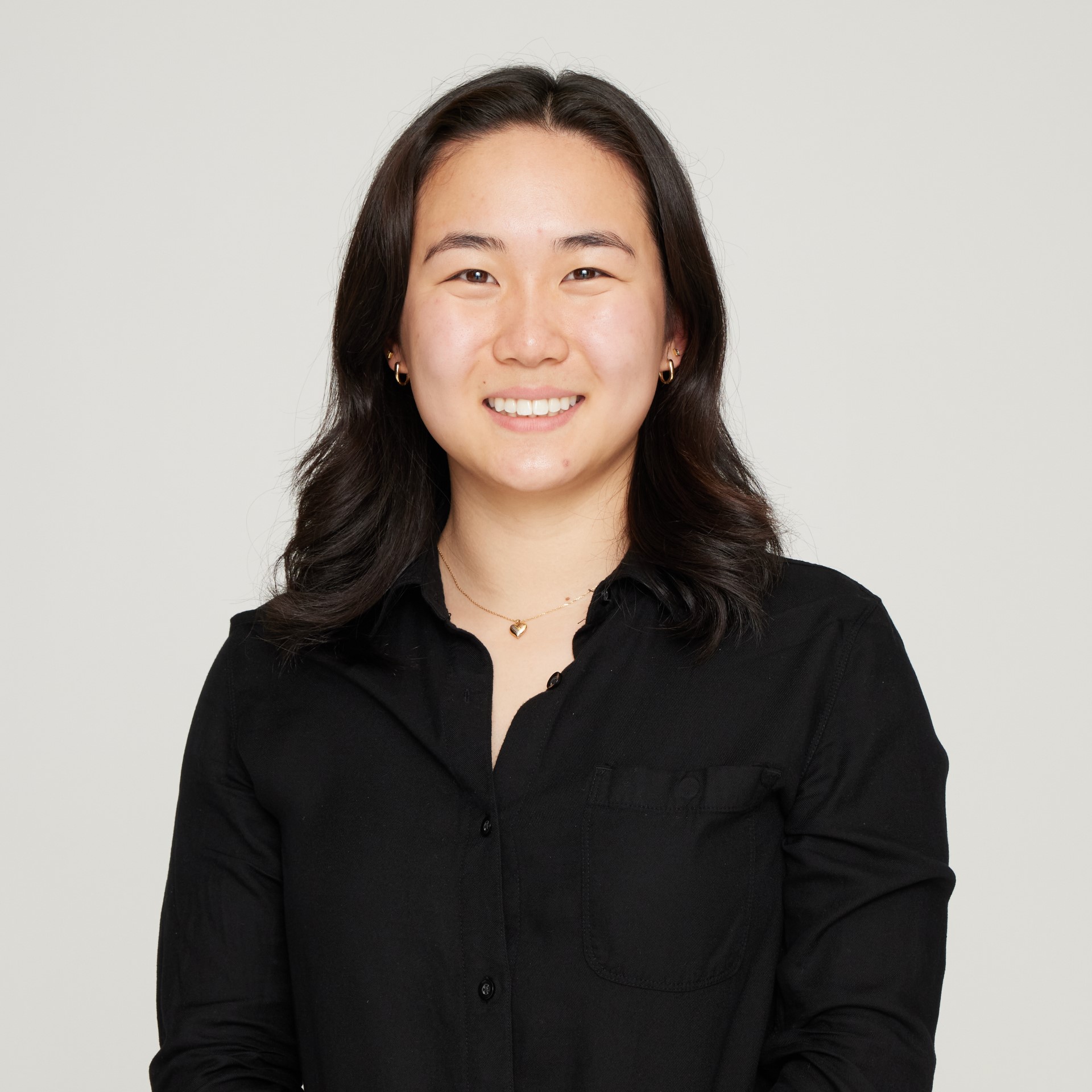
Name: Cindy Shu
Supervisor(s)/Institution: Dr. David Latulippe, McMaster University
Project Title: Addressing the challenge of virus chromatography recovery through an examination of anion-exchange membrane fouling
Profile: I recently finished my third year of Chemical and Bioengineering at McMaster University. This summer, I am excited to be working in Dr. David Latulippe’s laboratory under the guidance of Claire Velikonja.
Viral therapeutics are increasingly being used in oncolytic therapies, not only as the main clinical therapeutic but also in the production of other Advanced Therapeutic Medicinal Products or CAR-T therapies that utilize lentivirus. My research will focus on overcoming limitations in large-scale virus production and purification. The goal is to have a new understanding of how to increase virus chromatography recovery and facilitate cheaper and easier therapeutic manufacturing. Additionally, I will be involved in establishing the new Sartorius Biomanufacturing Research Facility at McMaster.
I hope that through this Summer Studentship, it will provide me with practical research experience which will offer insights into the realities of graduate studies and expose me to the world of biomanufacturing and R&D.
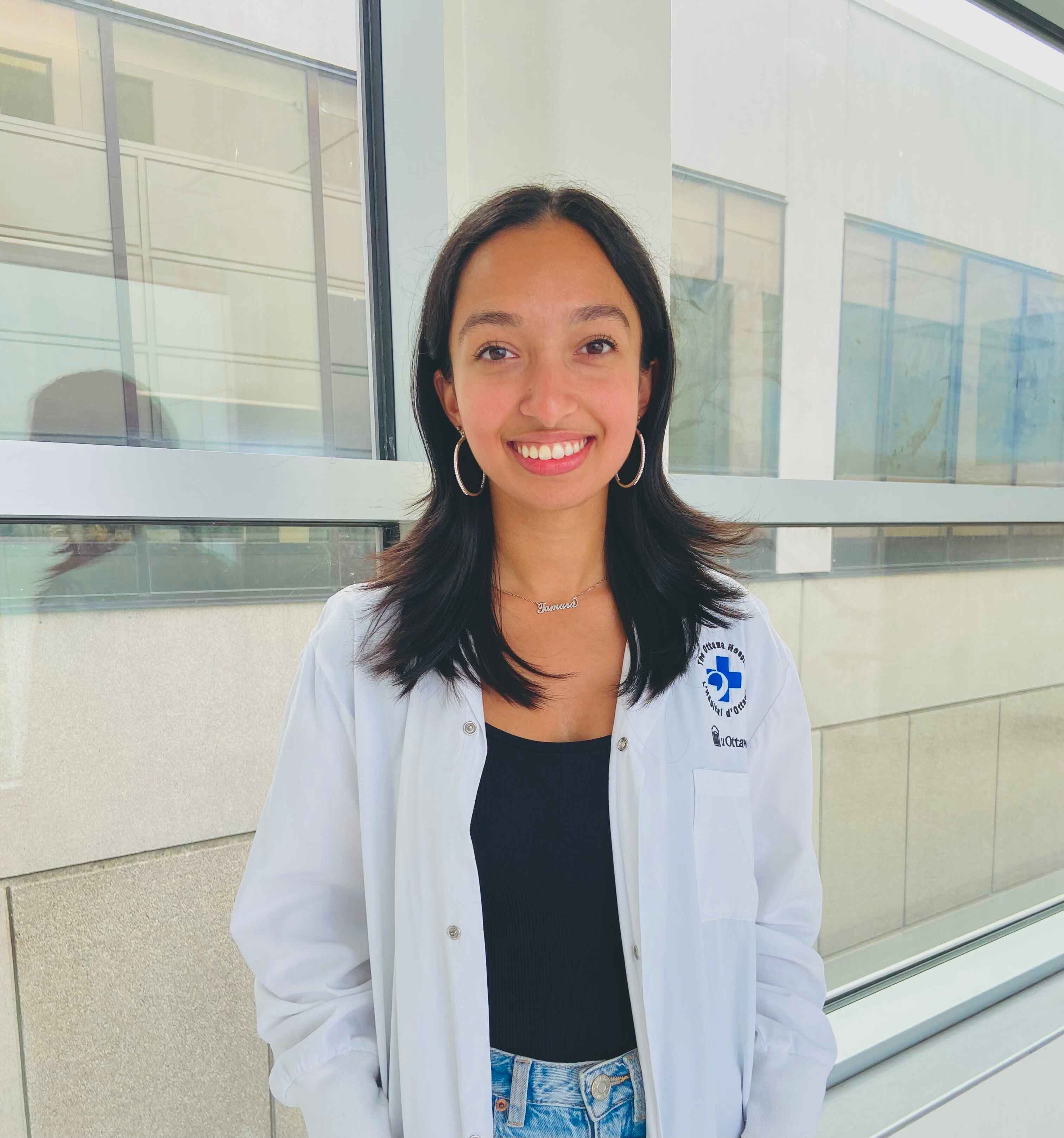
Name: Tamara Synek
Supervisor(s)/Institution: Dr. Carolina Ilkow, University of Ottawa
Project Title: Tailoring the tropism of lentiviruses to immune cells through pseudotyping
Profile: I am a fourth-year honours student in the Translational and Molecular Medicine research program at the University of Ottawa. This summer, I’m thrilled to be undertaking my BioCanRx internship under the supervision of Dr. Carolina Ilkow. I’ll also be starting graduate studies with the Ilkow lab in the fall!
My summer research project will focus on optimizing our lab’s lentiviral vector platform. Lentiviral vectors play a crucial role in clinical applications such as CAR-T cell biomanufacturing, allowing for the efficient integration of genetic material into target immune cells. Throughout the summer, I’ll assess various glycoprotein candidates used with lentiviral vectors to improve ex vivo transduction in immune cells and explore their potential for future in vivo T cell engineering.
I am very grateful to BioCanRx and the Ilkow lab for the opportunity to engage in such a fascinating research project as a significant step toward fulfilling my long-term career goal of becoming a cancer researcher.

Name: Aastha Vaidhya
Supervisor(s)/Institution: Dr. Uri Tabori, The Hospital for Sick Children
Project Title: Development of an LNP-mRNA vaccine for hypermutant RRD gliomas
Profile: I am a fourth-year student majoring in Health Sciences at Queen’s University. This summer, I will be working under Dr. Uri Tabori in the Genomics and Genome Biology area of SickKids Hospital.
Pathogenic mutations in DNA polymerase and DNA mismatch repair genes lead to DNA replication repair deficiency (RRD), fostering mutation accumulation and cancer development, particularly in the brain. Our project will focus on combating hypermutant RRD tumours, which have proven resistant to traditional treatment methods. The presence of highly immunogenic neoantigens absent in normal cells render RRD tumours an ideal candidate for cancer vaccines. Leveraging the promising advancements in immunotherapy, specifically LNP-mRNA vaccine technology, we aim to develop a novel approach to tackle these aggressive tumors. My role in this project involves identifying and validating immunogenic neoantigens present in both murine and human models of RRD glioma. Through computational predictions and bioinformatics analyses, The Tabori Lab has pinpointed potential candidates, and now it is time to put them to the test. I will be conducting in-vitro assays to validate the immunogenicity of these neoantigens, utilizing techniques such as Elispot assays and T cell mediated killing assays.
Looking ahead, my academic and career aspirations are deeply rooted in biomedical research and healthcare innovation. This summer project aligns perfectly with my goals of contributing meaningfully to the field of oncology and ultimately making a positive impact on patient care. I’m excited to immerse myself in this research journey and to collaborate with experts in the field, with the ultimate aim of translating our findings into tangible clinical solutions.

Name: Searra Warnock
Supervisor(s)/Institution: Dr. Sabine Kuss, University of Manitoba
Project Title: Chemoresistance Detection by Electrochemistry
Profile: I recently graduated from the Faculty of Science at the University of Manitoba, specializing in Microbiology and Immunology. When not immersed in academia, I find joy in maintaining an active lifestyle through weight training and exploring nature with my dog by my side. Equally cherished are the quieter moments spent relaxing with my cats.
This summer, I am thrilled to embark on a research endeavor within Dr. Sabine Kuss’s lab, where I’ll be delving into the intricate world of cancer biology. My focus will be on detecting, quantifying, and comparing biomarkers associated with cancer and chemoresistance. This includes investigating cell metabolites and the production of reactive oxygen species (ROS) in both cancer cells and healthy tissue. Utilizing cutting-edge electrochemical methods, I’ll analyze living cells, with a particular emphasis on biomarkers like ROS and glutathione across various cell lines such as keratinocytes, ovarian cancer, and melanoma. My aim is to capture real-time molecule efflux and explore innovative strategies to induce ROS production through chemical stimuli and UV irradiation.
Looking ahead, I am eager to pursue further studies, aiming to gain hands-on experience and specialized training in research, particularly within the realms of pathology and immunology. Understanding the pivotal role these disciplines play in cancer research fuels my passion to
deepen my understanding of their interconnectedness.
